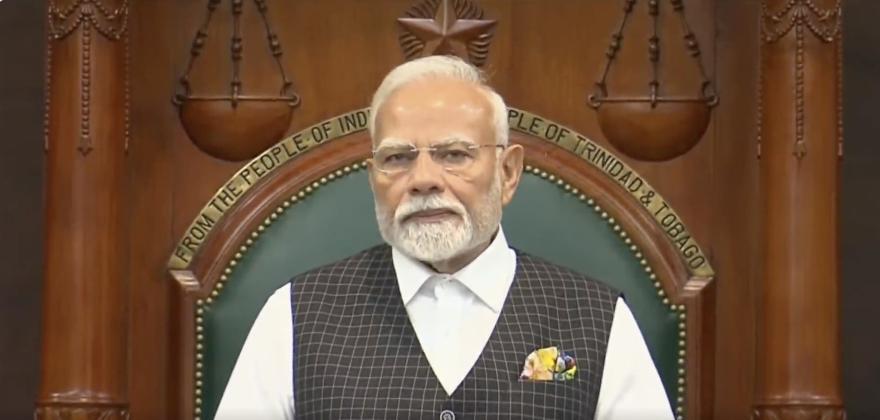
Title: Glad to see so many women MPs: PM in Trinidad & Tobago parliament
Prime Minister Narendra Modi’s recent address to the joint assembly of Trinidad and Tobago’s parliament has sent a powerful message about the importance of women’s representation in politics. Addressing the gathering, Modi expressed his delight at seeing a large number of women members in the house, highlighting the significance of women’s participation in nation-building.
Modi’s statement is not only a testament to his commitment to gender equality but also a reflection of the progress India has made in empowering women to take on leadership roles. The country has made significant strides in recent years, with women playing a crucial part in shaping its future.
Women’s representation in India’s parliament has witnessed a steady increase over the years. According to the latest data available, women hold around 14% of the total seats in the Lok Sabha, the lower house of parliament. This may not be as high as some other countries, but it is still a significant improvement from the mere 5% representation in 1990.
Modi’s government has been at the forefront of promoting women’s empowerment, with various initiatives aimed at increasing their participation in politics. The government has also taken steps to address the gender gap in education and employment, recognizing that women’s economic empowerment is essential for their overall development.
India’s progress in empowering women is not limited to politics alone. Women are increasingly taking on leadership roles in various domains, including business, education, and healthcare. According to a report by the World Economic Forum, India has the third-highest number of women entrepreneurs in the world, with women-led businesses contributing significantly to the country’s GDP.
The country has also seen a surge in the number of women taking up traditional male-dominated fields such as engineering, finance, and law. This shift is not only a testament to women’s growing confidence but also a reflection of the changing social norms and cultural attitudes towards women’s participation in the workforce.
Modi’s statement in Trinidad and Tobago’s parliament is a reminder that women’s empowerment is not limited to any particular country or culture. It is a global issue that requires collective action and commitment from individuals, governments, and institutions.
In his address, Modi also highlighted the importance of respect for women, stating that it is deeply rooted in Indian culture. This respect is not limited to women’s rights alone but is also essential for building a more equitable and just society.
Modi’s government has taken several initiatives to promote gender equality and combat gender-based violence. The country has also witnessed a significant increase in the number of women reporting cases of harassment and abuse, thanks to the efforts of organizations and individuals working towards creating a safer and more inclusive environment.
In conclusion, Prime Minister Narendra Modi’s statement in Trinidad and Tobago’s parliament is a powerful reminder of the importance of women’s representation in politics and society. India’s progress in empowering women is a testament to the country’s commitment to gender equality and its recognition of the critical role women play in building a brighter future.
As the country moves forward, it is essential that women continue to play a leading role in shaping its future. This requires not only their increased participation in politics but also their representation in all spheres of life, from education and employment to business and entrepreneurship.
Modi’s statement is a call to action for all individuals, governments, and institutions to work together towards creating a more equitable and just society. It is a reminder that women’s empowerment is not a women’s issue alone but a human rights issue that affects us all.



